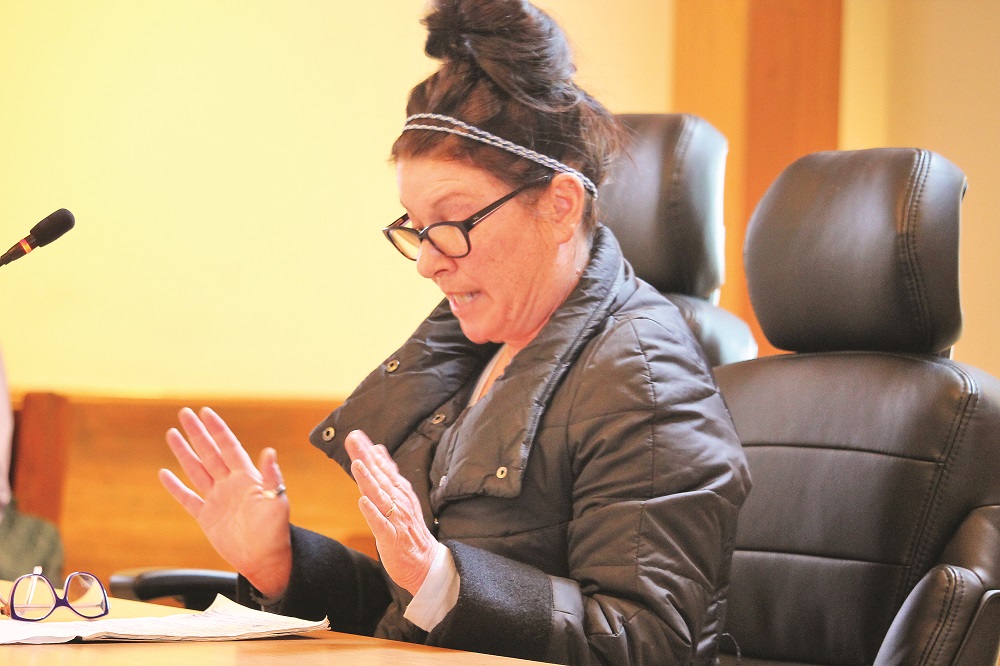The neighbour of a Minden property, where 14 hunting dogs were removed earlier this winter, made a plea to Minden Hills council March 12 to amend its dogs and kennels, and zoning, bylaws.
Shanna Dryburgh said she didn’t want to go into details of what she witnessed on the property, but she did say it was “excruciating” waiting three weeks for the dogs to be removed, following an animal welfare investigation that garnered nationwide attention.
“I couldn’t help but feel that the absence of specific bylaws contributed to prolonged distress for the dogs,” she said.
As she continues to educate herself about animal welfare at the provincial and municipal levels, she said she was shocked to learn there were no laws about storing a dog on vacant land and said, “there was no dwelling, no hydro, no water source, no humans. How could this be? There is no justification for leaving a dog chained up, alone outdoors; vulnerable and at risk … not for a lifetime in favourable weather not for an hour in the freezing cold … period.”
She asked council to add ‘warehousing of tethered dogs on vacant land’ as a prohibited use in all zones. She said had this been in place, the bylaw officer and animal welfare inspector would have had a straightforward and enforceable way to protect the dogs.
She also requested an amendment to have the maximum number of dogs in a rural zone be lowered from nine to four. She said it’s the number neighbouring municipalities allow. She said anything over four should require a kennel licence and meet all kennel daycare requirements.
She also said Minden needs to keep in step with other rural municipalities and put restrictions on tethering. And she’d like to see more specific criteria for adequate dog shelters.
“I think most people accept that some dogs live outside and certain dogs, when given the choice, actually prefer it. The problems arise when dogs are tethered 24/7, 365 days a year. They have no choice. In fact, there is no free will or self regulating. And then what are they? They are property, not sentient beings like science and research has years ago proven that they are.”
She noted the township’s dogs and kennels bylaw had not been amended since 2009, and its prohibited use in the zoning bylaw since 2013 – yet community standards had changed.
“We all know that some dogs around here have ‘survived’ for years, living on chains for all but two weeks a year, eating raw meat scraps, drinking snow and sleeping on the ground all winter. All with little to no human contact. But I believe this community has much, much higher standards than merely survival. A thorough review and amendment of our dogs and kennels bylaw and enforcement system by design, will reflect those evolving societal standards and values.”
Mayor Brent Devolin said a staff report would come back to council. He said he was keen to hear about the best practices of neighbouring jurisdictions as well as about enforceability.
Coun. Pam Sayne said she’d received calls since the story is in the media, and there appears to be a loophole that needs closing. She felt it had to be a team approach though, including working with the province.
The case came in a time of transition for animal welfare in Ontario. The Provincial Animal Welfare Services (PAWS) Act came into effect Jan. 1, putting enforcement in the hands of the province instead of the Ontario Society for the Prevention of Cruelty to Animals (OSPCA).





